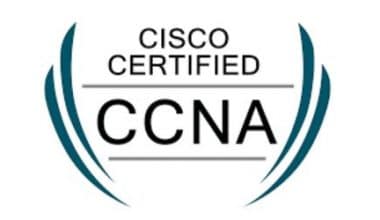If you are currently facing a family law dispute, it’s important to learn what you can about how the process works. The legal system is complicated, and knowing how to tackle the challenges involved can help you make decisions. Before going to court, try to resolve the dispute through mediation. One of the benefits of mediation is that it’s private and confidential. With mediation, you can work with a neutral third party to negotiate terms or come up with a resolution that works for everyone involved. Family law cases become public domain when they go to court, and this could have an impact on your career, personal life, or both if there are details that become available.
At the very start of a family law case, you’ll have to determine what kind of case you have. You should have an idea if this is a divorce, separation, or custody dispute. Knowing what kind of complaint you have can help you decide how to move forward during the proceedings. When you go to court, there are certain procedures and deadlines that must be followed throughout the process.
How Do You Get the Balance Right So That You Are Able to Help Your Clients Achieve Their Goals?
This can be challenging, but with the right set of skills, your prospects for success in family law cases will improve. Many people are able to resolve their disputes without going to court. In an ideal situation, you’ll be able to negotiate a settlement that both sides can agree on and sign in writing so that there is no doubt about what’s been agreed. A family law dispute could have an impact on your career.
If you have to go to court, the first step is to make sure that you have all of your evidence organized. You’ll need to create a case file that is easy to read so that everyone involved understands everything that’s happened. The other party might also try and influence the process in their favor by putting up weak evidence that could persuade the judge to rule in their favor. If this happens, it’s important to make sure that your side of the story comes out at trial.
How Do You Work with Your Clients to Ensure That the Welfare and Well-Being of the Child Are Always the Guiding Consideration?
With family law, the focus is often on the relationship between the two parties. However, you’ll need to be clear as to who has legal custody. This means that if one person has sole custody of their child, they have a great deal of control over what happens to their child. Unfortunately, this can also mean that they have less responsibility when it comes to making decisions on behalf of their children. If one or both parents have sole custody, they are responsible for making decisions on behalf of the child. The only time this may not be the case is if there is an agreement with the other parent that specifies otherwise. Usually, though, courts will make an order saying that both parents share joint custody.
Family law cases can involve questions about guardianship and custody. Each state has its own laws regarding this area of family law, as well as individual courts that interpret those laws in unique ways.
What Are the Unique Challenges That You Face as an Attorney When Dealing with Child Custody Cases?
Throughout the legal process, the judge will make decisions based on what’s in the best interest of the child. This could mean that a judge decides to grant joint custody but gives more weight to one parent. Another possibility is that one parent is given sole custody but is under an order from a court to allow the other parent to have access to the child.
In a divorce case, you can apply for spousal support or alimony. This is financial support that’s paid directly to the other party. There is a limit on the amount of spousal support that can be paid, however. In some cases, there might be an order made that says that neither party pays alimony. In other cases, the judge might award alimony based on how much each party needs to live on.
In Divorce Matters, Which Strategies Do You Employ to Track Down Undisclosed Assets?
You’ll need to do as much as you can to make sure that you have all of the information possible so that you can properly provide for your client. In some cases, a former spouse might not reveal all of his or her assets. This could mean that they have an account at a bank that they don’t tell the court about. You should make sure that you ask the right questions and do whatever is necessary to make sure that you get an honest answer. In some cases, a party might transfer assets over to someone else. This could mean that the court doesn’t have jurisdiction over the other party if that person isn’t considered a co-owner of the asset.
Conclusion:
Family law covers a wide range of issues. Many people believe that they have the legal knowledge and skills to deal with family law matters. However, it is important to have the right experience and training to help resolve disputes. Like other areas of the law, family law involves a specific set of procedures, and you need to know how to handle yourself in court as well as when dealing with clients outside of court.






